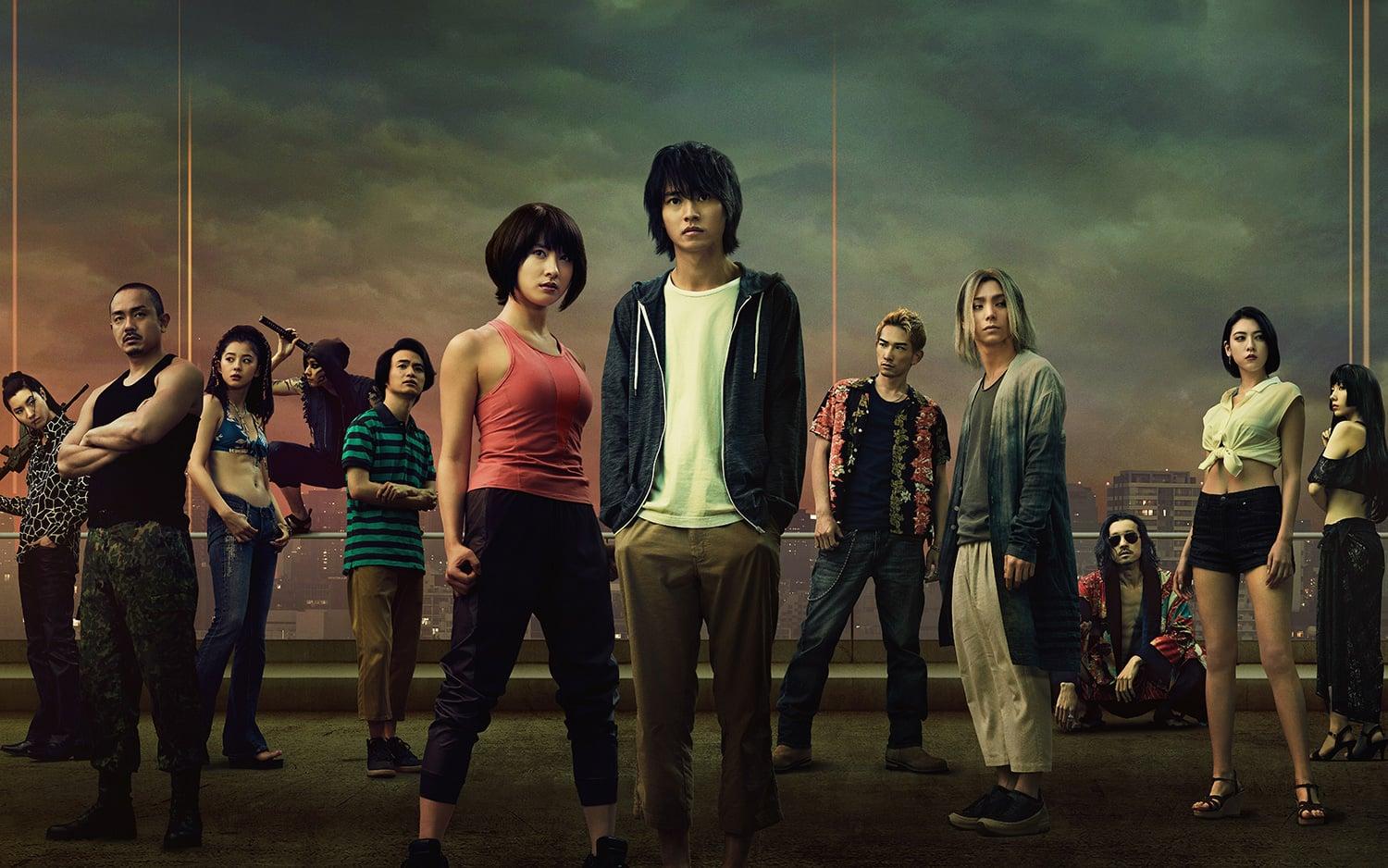Alice in Borderland by Shinsuke Sato (Review)

Ryōhei Arisu is the epitome of a slacker. Despite being scorned by his father and brother as an embarrassment, Arisu is perfectly content to spend his days sitting around the house, playing video games, and basically avoiding anything that requires ambition, hard work, or responsibility. And on those rare occasions when he’s not lazing about the house, he’s out causing mischief around Tokyo with his best friends, Chōta and Karube.
Feeling aimless and bored, Arisu wishes for a more interesting life — a wish that’s granted in a most shocking way when the three friends suddenly find themselves in an apparently abandoned Tokyo. As they wonder through the eerily empty streets, signs lead them to an apartment building filled with a series of deadly traps which they’re able to survive and escape from thanks to Arisu’s gaming skills, but just barely. It’s only then that they learn the truth of this alternate Tokyo: in order to stay alive, they must risk their lives playing a never-ending series of lethal games, and if they refuse to play, they’ll be instantly killed.
Adapted from Haro Aso’s manga by writer/director Shinsuke Sato — who has made a career out of live-action manga adaptations (e.g., Gantz, Bleach, Inuyashiki), Netflix’s Alice in Borderland is an entertaining blend of angst-y melodrama and dark, bloody suspense. It’s not high art or anything, and the series’ premise — people trapped in an alternate Tokyo are forced to play deadly games to collect playing cards or else they’ll be killed by laser beams from the sky — may be too far-fetched for some, but to Sato’s credit, he creates an appropriate sense of atmosphere that helps sell it. (If this tells you anything, I was reminded of Kinji Fukasaku’s Battle Royale on more than one occasion, and not just because of the exploding necklaces that certain characters wear.)
Whether it’s the games themselves (which are often quite diabolical), a willingness to kill off anyone in shocking fashion (thus helping to establish the stakes involved), layered characters with backstories that prove surprisingly relevant and useful (and are explored via Lost-esque flashbacks), or just the many shots of a Tokyo devoid of its populace, I was never not entertained as I watched Alice in Borderland.
The first half of the season primarily sets the stage, as Arisu and his friends learn the rules of this deadly new life and encounter others who share their plight, including a former office worker named Shibuki whose friendliness masks some dark secrets; Chishiya, who seems to know more than he’s letting on and has his own agenda; the taciturn and brutish Aguni; and Usagi, a mountain climber whose resourcefulness and survival skills come in handy. (Arisu himself is a pretty milquetoast protagonist at first, which makes it hard to swallow certain plot and character developments. But his burgeoning friendship with Usagi and the way their skills and abilities complement each other is one of the series’ best aspects.)
The real drama comes in the season’s second half, when Arisu et al. arrive at “The Beach,” a luxurious hotel that’s been converted into a refuge for those trapped in this alternate Tokyo. Surprised by the hedonism surrounding them — thanks to the influence of its cult-ish leader, the Beach is as much a non-stop party à la MTV Spring Break as anything else — Arisu’s group is drawn into the growing conflict between the Beach’s various factions. In addition to jockeying for control of the Beach, they’re all seeking possession of the playing cards earned from the games, believing that whoever possesses all of the cards can return to the real world.
It’s during this second half where both the series’ strengths and weaknesses are on full display. On the one hand, the series’ psychological aspects really get ramped up. Arisu and Usagi in particular find themselves put through the wringer. On the other hand, the machinations and conspiracies prove rather tedious. It’s hard to believe that the various factions were capable of establishing the Beach in the first place, much less squabble for actual control over it. But given its length, the series doesn’t allow itself to get too bogged down in such things, but instead, goes for broke in the final episodes. I’ll admit to gasping in surprise and delight at some of the final twists, especially when the Beach is revealed to be less of a refuge (and party hub) than everyone thought.
Not surprisingly, the first season ends on a cliffhanger that perfectly sets up a second season (which Netflix has already approved). The final minutes of Alice in Borderland’s season finale significantly up the ante, revealing some clues that this alternate Tokyo is even stranger and more dangerous than previously thought. Suffice to say, I’m looking forward to another season of Arisu et al. being pushed to their limits (physically, mentally, ethically) in order to survive in this strange new reality.
